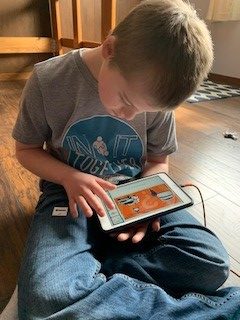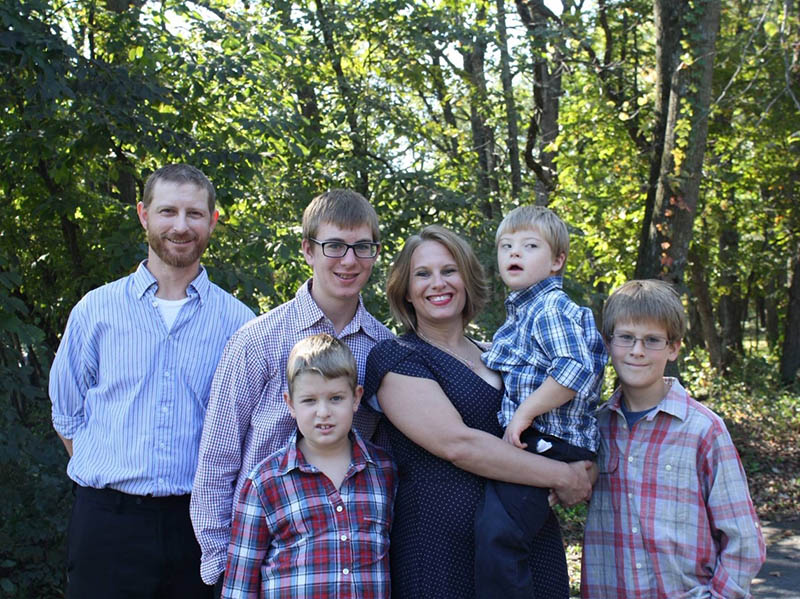The novel coronavirus pandemic is proving to be even more of a challenge for children at home with special needs. Many families, forced to switch up their normal routine, are left without the support they may typically receive outside of home.
Sanford Health clinical psychologist Brian Gatheridge, Ph.D., looks at what families need right now and why some might be struggling more than others.
Dr. Gatheridge, who specializes in pediatric psychology, says this virus has impacted everyone — particularly families with kids who have intellectual or developmental disabilities. One big reason is because they’re losing the support they have at school, for example, or through various therapies.
“Kids I see have a great support network that does everything from teaching kids to grip a pencil, zip up their coat at school to teaching them social and emotional self-regulation skills,” Dr. Gatheridge said. “Because of this circumstance, parents have been forced to serve in multiple roles for their children. They are not only parents, but also serving as therapists and educators. They are attempting to do this while they also perform at their own job from home. It’s taxing kids and families to the max.”
An everyday battle
For Jeni Oelkers, a mom of four boys in Spencer, Iowa, the struggle right now is real.
Enlarge

Her two youngest boys live with special needs. Her family’s world was turned upside down when schools closed and everyone was encouraged to stay home. Vinny, 13, was diagnosed with autism and struggles with OCD, anxiety, depression and early signs of bipolar disorder. Evan, 11, was born with Down syndrome and autism.
Oeklers made a tough decision to split the boys up, sending Vinny to his grandmother’s so she could better manage things at home.
“So I am on my own trying to make sure everyone is doing their schooling, FaceTiming Vinny at Grandma’s to make sure he is doing his schooling,” she said. “Evan does not like to do any schooling because, ‘School is for school and not for home.’ It’s very black and white for him,” she said.
Most days, the only thing that works, she says, is bribery. A brownie or time outdoors might get her 10 to 15 minutes of math or reading work done, if she’s lucky.
“That usually follows a half-hour of screaming, kicking, biting and hitting himself,” she said. “It’s not pretty.”
She says these unprecedented times are anxiety-ridden.
Enlarge

“I feel terrible for (Evan) because he does not understand,” Oelkers said. “While I feel a little self-pity having to try to make it work, then I have to realize this is really bad for him, too. He doesn’t understand why he’s not at school, why we’re having to do schoolwork at home, why we’re not leaving, going anywhere, any of those things. He does not understand that.”
Understanding, coping with disruption
The first thing, Dr. Gatheridge says, is to not be afraid to talk to your kids at their developmental level.
Additionally, practice the Four M’s:
- Model calm
- Maintain normalcy
- Move your body
- Monitor news consumption
Kids with special needs may thrive from adaptive living activities or simple chores in or around the home, he says. But make sure they have time and opportunity to socialize as much as possible.
The blessing in disguise
For some families, this extra time together is helping improve their relationship.
“I was amazed to see a 15-year-old come to my office and say all these circumstances were ultimately a blessing in their life,” Dr. Gatheridge said. “For her family, life is less stressful. They’ve had an opportunity to slow down. Schoolwork demands have been less for this student. The family isn’t racing from one activity to the next.”
He challenges us all to see this as an opportunity for growth and to focus on what’s important, like family.
“We’re ultimately going to get through this,” Dr. Gatheridge said. “Every day, we seem to get more information that we’re winning the war against the invisible enemy. It’s taking some time, longer than a lot of us would have liked. I’m hoping there will be some positive changes that ultimately come from this significant source of stress in our lives.”
More stories
- Mother’s Day on the front lines for a doctor and nurse
- COVID-19 FAQs: How to talk to your kids about coronavirus
- COVID-19 Q&A: Pediatrician urges well child visits, physicals
…
Posted In Children's, COVID-19, Wellness
